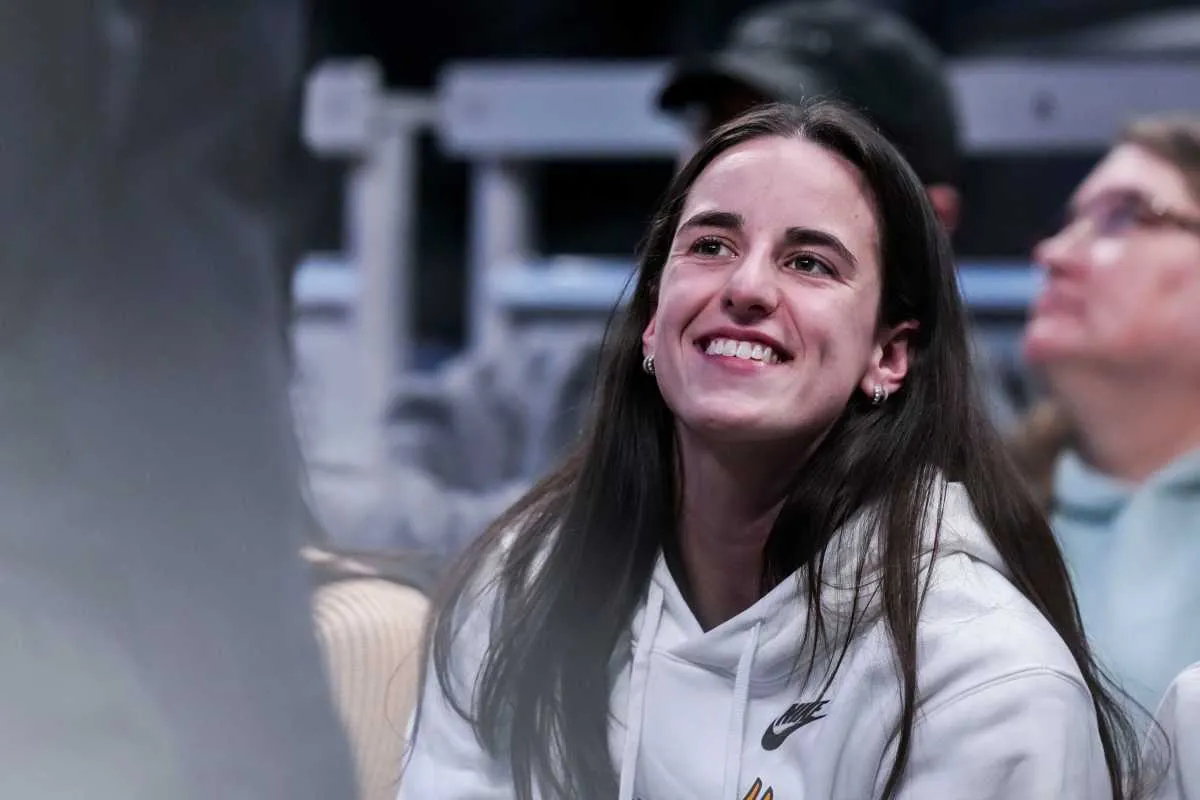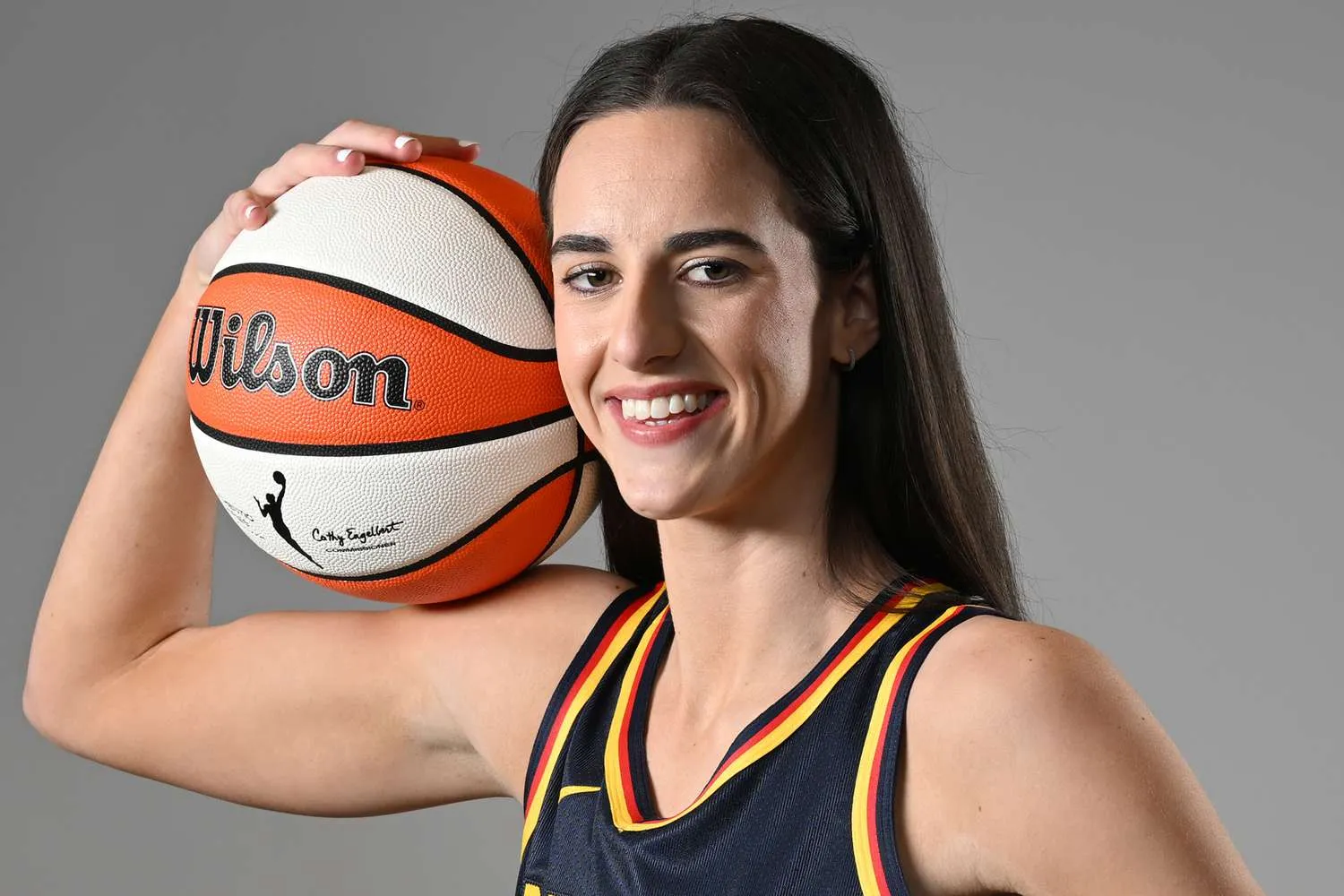Caitlin Clark, the Iowa Hawkeyes superstar turned WNBA sensation, has taken the basketball world by storm, shattering records and inspiring a legion of young fans along the way. Her meteoric rise has sparked endless conversations about her talent, charisma, and unprecedented impact on women’s sports. But a recent comment from ESPN analyst Monica McNutt has thrown a provocative curveball into the mix, igniting a firestorm of debate across sports media and social platforms. McNutt, a respected voice in basketball commentary, suggested that Clark’s massive popularity among young girls might owe more to her race than many are willing to admit, specifically pointing to her being white as a key factor. The bold claim has left fans buzzing, critics fuming, and the sports world grappling with uncomfortable questions about race, representation, and hero worship.

Clark’s ascent is nothing short of legendary. In her rookie season with the Indiana Fever in 2024, she smashed viewership records, drew sellout crowds, and earned the WNBA Rookie of the Year title with a stat line—19.5 points, 8.4 assists, and 5.7 rebounds per game—that screamed superstar potential. Her college career at Iowa was equally electrifying, with NCAA records for most points and three-pointers cementing her as a generational talent. Off the court, her approachable demeanor, sharp wit, and relentless work ethic have made her a role model for countless young girls dreaming of hoops glory. Merchandise bearing her name flies off shelves, and social media overflows with clips of kids mimicking her signature long-range shots. But McNutt’s analysis on a recent ESPN segment has shifted the lens from Clark’s skills to a deeper, more divisive narrative.
“Caitlin Clark is undeniably phenomenal,” McNutt said during a panel discussion on April 1, 2025. “But we can’t ignore the elephant in the room: her being white plays a role in why she’s become this idol for so many young girls. In a league where Black women have dominated for decades, her race makes her stand out, and that visibility resonates in ways we need to unpack.” The statement hit like a lightning bolt, drawing gasps from co-panelists and instantly trending on X, where reactions ranged from applause to outrage. Supporters praised McNutt for tackling a taboo topic, while detractors accused her of reducing Clark’s success to skin color rather than merit.
The numbers back up Clark’s crossover appeal. A 2024 Nielsen report showed WNBA viewership spiked 48% during Fever games, with a notable uptick in suburban and predominantly white audiences—demographics not historically tied to the league’s core fanbase. Marketing experts note that Clark’s image aligns with a “girl next door” archetype, amplifying her marketability in a way that transcends basketball. Yet, McNutt’s point isn’t about denying Clark’s talent; it’s about context. The WNBA, a league where over 70% of players are Black, has long celebrated icons like Lisa Leslie, Sheryl Swoopes, and A’ja Wilson—stars who’ve paved the way but rarely achieved Clark’s level of mainstream adoration. Could race be the unspoken edge?

The backlash was swift. “This is disrespectful to Caitlin’s grind,” one fan tweeted. “She’s breaking barriers because she’s clutch, not because she’s white.” Others rallied behind McNutt, arguing that systemic biases in sports media and culture often elevate white athletes to “savior” status—a pattern seen with figures like Larry Bird or even NFL quarterback Brock Purdy. Data from a 2023 study by the Institute for Diversity and Ethics in Sport shows white athletes receive disproportionate coverage despite being minorities in basketball, lending credence to McNutt’s angle. Still, Clark’s defenders insist her appeal is universal, rooted in her jaw-dropping playmaking and not a racial playbook.

Clark herself hasn’t directly addressed the comment, but her past statements emphasize gratitude for her platform and a desire to inspire all kids, regardless of background. “I just want to hoop and show what’s possible,” she said in a post-game interview last month. Meanwhile, McNutt doubled down on X, writing, “It’s not an attack—it’s a conversation. We owe it to the game to talk about this.” That conversation is now inescapable, forcing fans, analysts, and the WNBA itself to confront how race shapes stardom. Is Clark’s whiteness a boost, or is her brilliance enough? As the debate rages, one thing’s clear: her story just got a lot more complicated—and a lot more compelling.